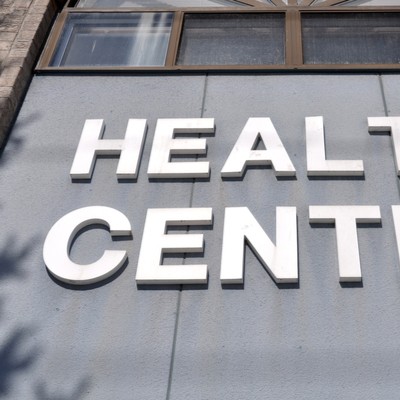Mental Health

Michiganders continue to report difficulty accessing mental health care, forgoing needed care.
The 2020 Cover Michigan Survey, an online survey fielded in early 2020 (before the COVID-19 pandemic began impacting Michigan), asked Michiganders about their ability to access mental health care. Across Michigan, 47 percent of survey respondents reporting needing mental health care before the COVID-19 pandemic, and the COVID-19 pandemic is thought to be exacerbating mental healthcare needs. Among these Michiganders, …
Read more >
Protecting individuals with SMI from COVID-19: Best practices for community mental health agencies and clinics
For individuals with a serious mental illness (SMI)—a mental, behavioral, or emotional disorder that interferes with or limits major life activities—the COVID-19 pandemic may present a particular threat. Community mental health agencies and clinics need to be prepared to protect their clients with SMIs from COVID-19 by understanding and following best practices for this unique situation. To slow the spread …
Read more >
COVID-19 rapid response brief: Meeting the behavioral health needs of Michigan’s prison population
Throughout the COVID-19 crisis, staff members at the Center for Health and Research Transformation (CHRT) have been conducting rapid response research for Michigan policy leaders who are working proactively to protect vulnerable communities across the state. In this analysis for the Michigan Department of Health and Human Services, we explore best practices for meeting the behavioral health needs of Michigan’s …
Read more >
Recruiting and retaining behavioral health workers in rural America: Our report and action guide
In the U.S., there are not enough behavioral health workers to meet the demand for mental health and substance use services, particularly in rural areas. Over the past year, the Center for Health and Research Transformation (CHRT) has worked closely with the University of Michigan’s Behavioral Health Workforce Research Center (BHWRC) to explore the approaches states have taken to address …
Read more >
A primer on Michigan’s community mental health system: A report for the Ethel and James Flinn Foundation
Michigan’s community mental health (CMH) system serves more than 300,000 people: Approximately 155,000 adults with serious mental illness, 51,000 children with serious emotional disturbance, 50,000 people with intellectual or developmental disabilities, and 73,000 people with substance use disorder. These community mental health services are funded by Medicaid, state general funds, block grants, and local funds. Approximately half (49 percent) of …
Read more >
Cover Michigan Survey: Use of Health Care Benefits in Michigan
Data from the Center for Health and Research Transformation’s (CHRT) 2018 Cover Michigan Survey show health benefits that Michiganders with health insurance coverage have used in the past year (1)Survey participants were asked whether or not they or other family members covered by their plans used each health care benefit in the past 12 months.. Detail on the Cover Michigan …
Read more >
Bipartisan Budget Act adds $3B for substance abuse, mental health, more
The Bipartisan Budget Act was signed into law on February 9, 2018. While the main purpose of the legislation is to temporarily fund the federal government through March 23, 2018, it also includes an agreement to raise the caps on domestic and military spending for the next two years. The legislation includes many health care policies, as well. The health care …
Read more >
The impact of the ACA on community mental health and substance abuse services: Experience in three Great Lakes states
The Affordable Care Act (ACA) allowed states to expand Medicaid coverage to low-income childless adults, many of whom receive specialty mental health and substance use services through community mental health systems. Leading up to the passage of the ACA, community mental health providers and their professional associations were generally supportive of expanding Medicaid under the ACA. Medicaid covers specialty services …
Read more >
The Effects of the Affordable Care Act on Federally Qualified Health Centers in Michigan
Federally Qualified Health Centers (FQHCs) form a critical part of the health care safety net, providing essential primary care services to people with limited health care access. The Affordable Care Act (ACA) increased FQHC funding from 2010 through 2015 and significantly expanded the insured population beginning in 2014. The purpose of this brief is to describe how the overall experience …
Read more >
Wellness program participation
This brief examines the characteristics of Michigan residents who reported being invited to participate in wellness programs and their perceptions of these programs. The brief is based on data from the Center for Healthcare Research & Transformation’s (CHRT) 2015 Cover Michigan Survey of Michigan adults, fielded between October and December 2015. Wellness programs have grown increasingly common in recent years. …
Read more >References
| ↑1 | Survey participants were asked whether or not they or other family members covered by their plans used each health care benefit in the past 12 months. |
|---|